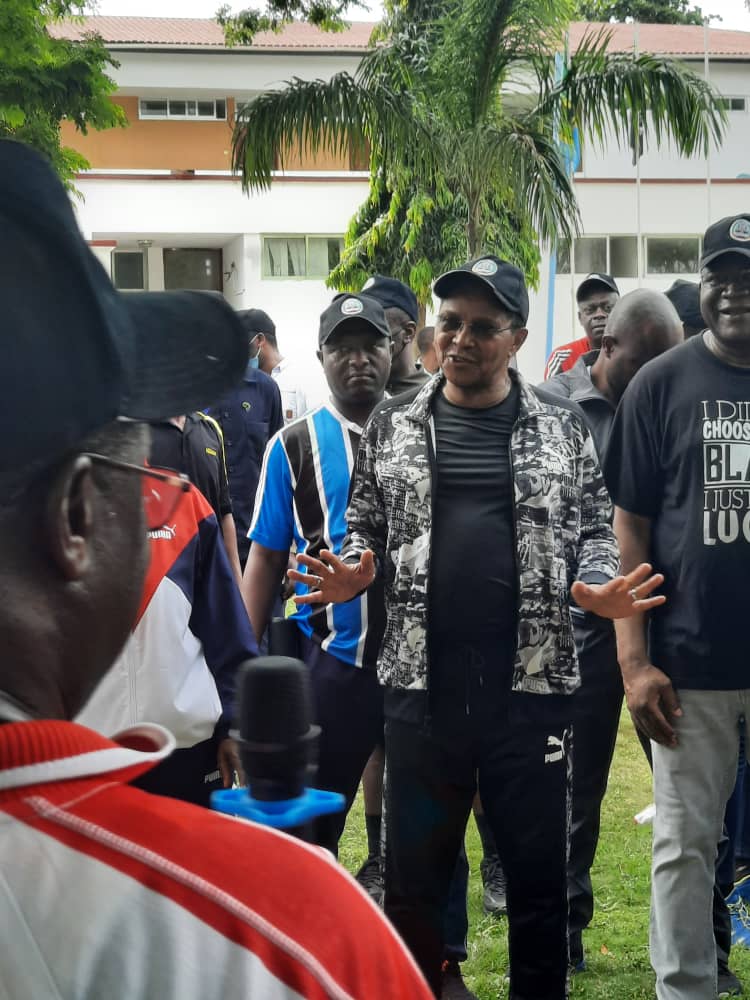By Catherine Ageno
The former president of Tanzania H.E Jakaya Kikwete has challenged the African Court to push for the realization of Agenda 2063 through its work.
Speaking ahead of the 5th Judicial dialogue that opens on Wednesday morning in Dar-es-Salaam, Tanzania, Kikwete urged participants at the dialogue to premise their deliberations on the faith the African continent has in them to make Africa a continent where peace, justice, and stability are attained through observance and promotion of people’s rights.
The 2-day biannual conference which brings together Chief Justices, academia, senior lawyers and judicial officers, and civil society is drawn from across the continent will be running under the theme; “building trust in African judiciaries”.
Speaking as Chief Guest for the five-kilometer walk to mark the Court’s 15th anniversary that stretched from Kidondoni Leaders’ Club to Oysterbay Police Officers’ Mess in Dar-es-Salaam, Kikwete urged participants to premise their deliberations on the faith the African continent has in them especially towards the realization of Agenda 2063 where peace, justice, and stability can only be realized when people’s rights are realized.
He also congratulated the African Court on Human and People’s Rights upon the commemoration of its 15th anniversary and commended it for the wonderful work it has done thus far in advancing human and peoples’ rights on the continent, adding that it is a clear testimony of the African Union to create an African solution to African problems.

Kikwete commended the Court for organizing a conference preceding the judicial dialogue to take stock and assess the impact and implementation of its decisions.
“I commend this step and it helps in identifying areas of strength and challenges the Court is grappling with and provides a forum for collectively consolidating the gains and addressing gaps and challenges.
On this note, H.E Kikwete challenged the Court to take note of the challenges and the gaps identified by the participants so as to properly address them in order to enhance its work.
This conference on the implementation and impact of the decisions of the African Court was running from 1st-3rd November, 2021, at the Julius Nyerere International Conference Center, Dar-es-Salaam, Tanzania.
He asked the Court to continue raising awareness to the continent’s youth about its activities to ensure a peaceful and prosperous continent where human rights and justice are being upheld and respected.
Speaking at the same event, the President of African Court, Hon Lady Justice Imani Daud Aboud thanked His Excellency Jakaya Kikwete, for the pivotal role he played in the functioning of the Court as it was under his leadership that Tanzania offered to host the Court and provide it with the necessary logistical facilities to operate from the city of Arusha.
She also noted that although walking is generally associated with health, fitness, and wellbeing, this particular walk was used for advocacy purposes.
“It may be argued that advocacy walks serve just the same purpose as fitness and wellbeing walks although the aim is to express or regenerate commitment rather than the body. This explains why walks are, as we all know, associated with leadership”, she said.
The Court was established by virtue of Article 1 of the Protocol to the African Charter on Human and Peoples’ Rights on the Establishment of an African Court on Human and Peoples’ Rights. The Protocol establishing the African Court was adopted on 9 June 1998 in Burkina Faso and came into force on 25 January 2004.
The mandate of the Court is to complement and reinforce the functions of the African Commission, which is a quasi-judicial body charged with monitoring the implementation of the Charter.
The Court applies the provisions of the African Charter on Human and Peoples’ Rights and other human rights instruments ratified by the States concerned.








